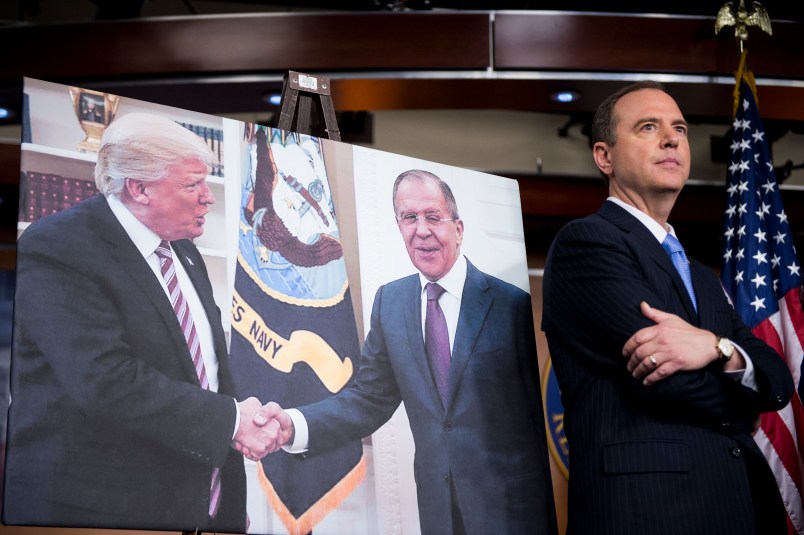Congress has no independent power to inform the public about the activities of the president, President Trump told the Second Circuit Court of Appeals on Tuesday.
“The informing function is a manifestation of Congress’s legislative authority over federal agencies,” personal attorneys for the President wrote in an appellate brief. “It is not a power that exists independently of legislation, and it does not extend to private individuals or the President.”
The argument came as Trump hired private lawyers to stop two financial institutions he’s long worked with — Deutsche Bank and Capital One — from complying with congressional subpoenas issued by the House Financial Services and Intelligence committees.
A Manhattan federal judge denied an early petition from the President in May to halt the subpoenas’ enforcement, saying that the case wasn’t “serious.” Trump then signaled that he would appeal.
In the Tuesday appellate brief, Trump’s attorneys tailored much of their argument to the lower court judge’s implication that the case wasn’t serious.
“Of course, use of congressional subpoena power to receive from a third party a sitting President’s financial records will always be serious in that the outcome will have serious political ramifications,” the judge said at the hearing, distinguishing it from serious “in the context of judicial interpretation.”
Trump had argued that Congress lacked a “legitimate legislative purpose” in trying to investigate his finances. The brief goes on to address whether “plaintiffs raised a serious question” regarding Congress’ legislative purpose, and whether there was a “serious question” about a financial privacy law barring Congress from viewing information from Trump’s lenders.
The district court dismissed Trump’s argument on legislative purpose in part because Congress is authorized to gather information not only to legislate, but to inform.
“The informing function is not a basis to uphold these subpoenas,” Trump’s lawyers argued in the Tuesday brief.
They added: “Congressional investigations to gather information and inform the public— without a tie to valid legislation—are constitutionally illegitimate.”
Trump also asks the appellate court to view the case in a similar light as cases that emerged from the House Un-American Activities Committee during the era of Sen. Joe McCarthy (R-WI).
“Judicial ‘deference’ to congressional subpoenas ‘cannot yield to an unnecessary and unreasonable dissipation of precious constitutional freedoms,'” the brief reads. “Now, as then, a ‘measure of added care on the part of the House and Senate in authorizing the use of compulsory process’ is a ‘small price to pay’ to ‘uphold the principles of limited, constitutional government.’
Read the full brief below:






